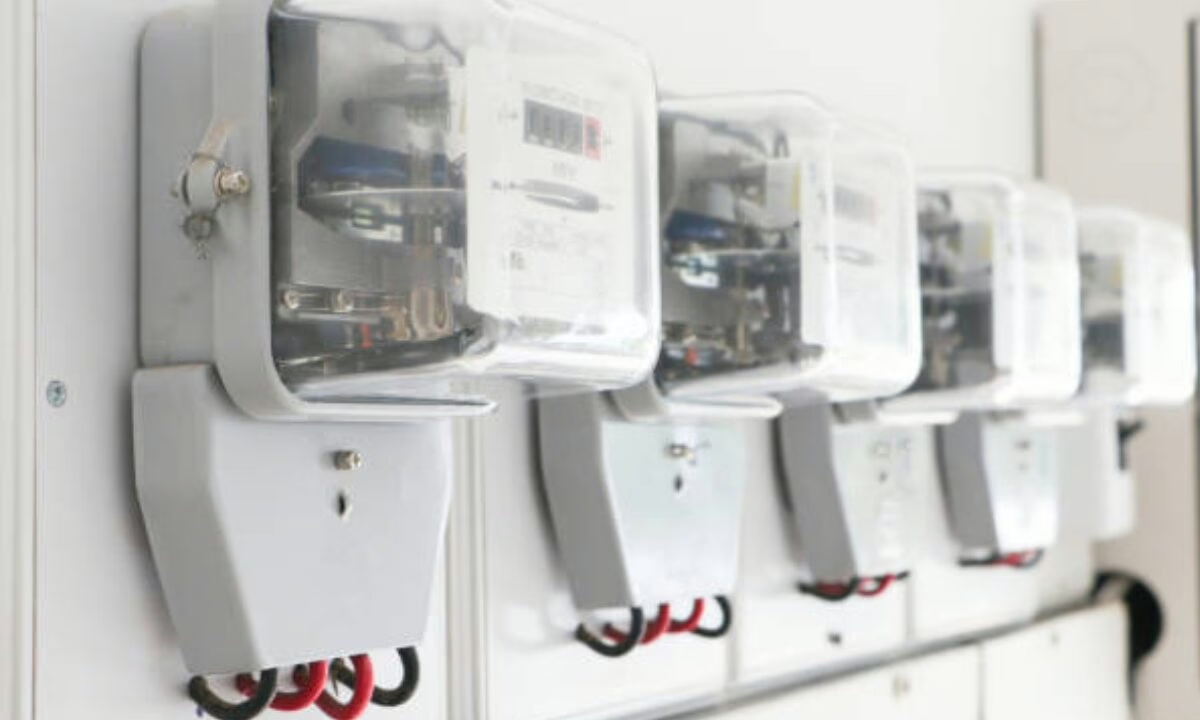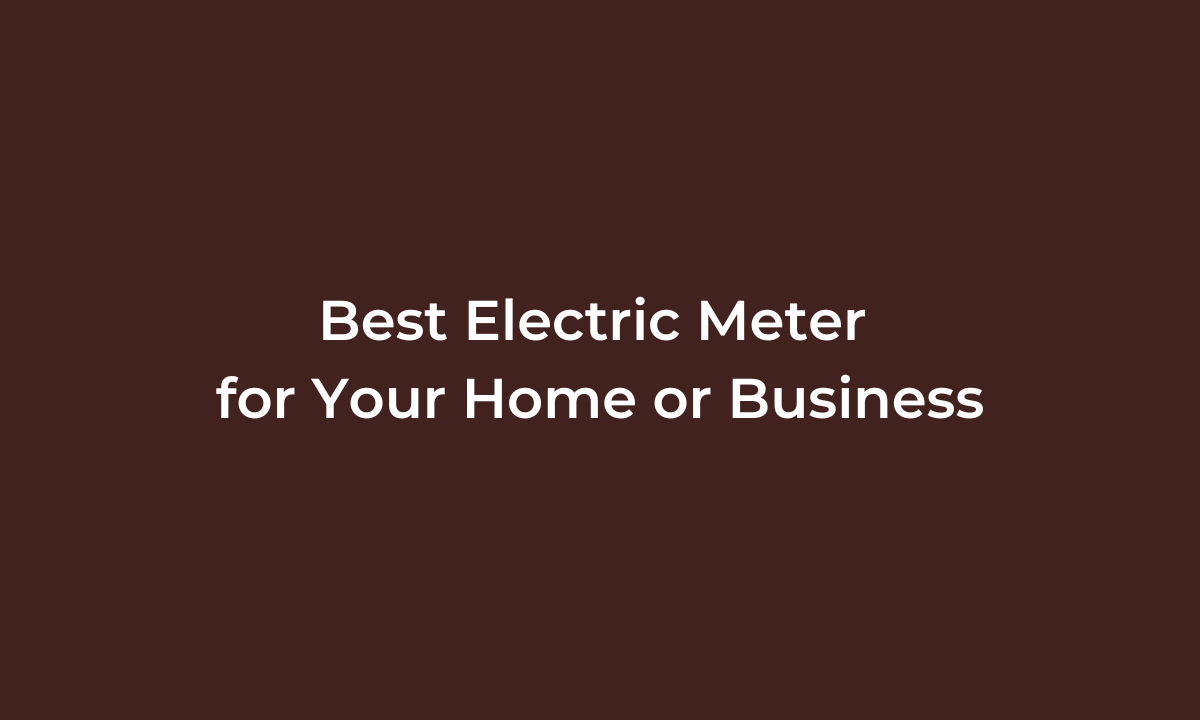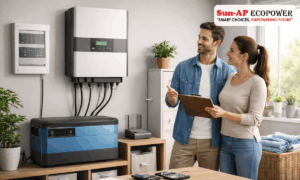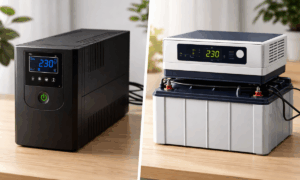Electricity is the backbone of modern life, powering homes, businesses, and industries. One critical component of an electrical system is the electric meter, a device that measures electricity consumption. Whether you’re a homeowner or a business owner, choosing the right electric meter is crucial for ensuring accurate billing, monitoring energy usage, and optimizing efficiency. Electric meters have evolved to meet the various needs of the users. The following guide will help you understand what an electric meter is, its types, and factors to consider when choosing the best option for your home or business.
Understanding Electric Meters

An electric meter is an important appliance that utility companies install to measure the amount of electricity used. It records the amount of energy consumed within a certain period, usually in kilowatt-hours (kWh). The data collected is useful for utility providers to create bills and allows users to track their consumption patterns.
Modern electric meters have much more than the basic reading. Most models are advanced and feature remote monitoring, real-time usage data, and smart home integration. The meter is functional and also takes a step toward energy efficiency and cost savings.
Secure meters are made to be reliable and accurate. The majority of secure meters are tamper-proof so that no data will be manipulated. These meters are popularly used in commercial and industrial places but can be applied for residential needs too, depending on the model.
Types of Electric Meters
There are various types of electric meters. The knowledge of such will be very important in making a decision:
1. Analog Meters
Traditional analog meters are mechanical devices that use dials to display energy usage. They are gradually being phased out in most regions for their limitation in utility and unsteady measurement as compared to digital models.
2. Digital Meters
Digital meters show the electricity usage on a digital display board. These are more accurate, readable, and easy to use than analog meters. Many of these models come equipped with the facility for use tracking facility.
3. Smart Meters
Smart meters are digital meters that have sophisticated features, like collecting real-time data and communicating remotely with utility providers. They help the user gain a better understanding of their usage pattern, so the user is more informed when deciding on consumption.
4. Prepaid Meters
Prepaid meters make users pay for electricity before its consumption. It’s perfect for keeping energy use within a set budget. Moreover, it saves surprises in the form of bills received at the end of each month.
Why Choosing the Right Electric Meter Matters
The selection of the appropriate electric meter influences your finances and energy management. Here’s why:
- Precise Billing: A trusted meter will charge you for exactly the electricity you consume.
- Monitoring Energy: Advanced meters reveal patterns of consumption, which help diminish waste and save you extra money.
- For compliance with regulations: Quite several regions have stipulated the type of meters that are appropriate for specific settings, hence ensuring legal compliance.
- Smart Home Integration: Current advanced meters can be connected with smart home systems, adding convenience and control to your life.
To choose the best electric meter for your needs, consider the following factors:
1. Purpose
Determine whether the meter is for a residential property, a small business, or a large commercial establishment. Residential meters are simple, but commercial and industrial meters may require advanced features.
2. Budget
Electric meters are available at various prices. The cheapest are the analog meters, while smart meters and secure meters are relatively expensive but save much in the long run.
3. Type of Connection
Meters can be single-phase or three-phase. Single-phase meters are commonly used in houses, while three-phase meters are used in businesses and industries that consume a lot of electricity.
4. Features
Smart meters and secure meters are often accompanied by additional features such as:
- Real-time monitoring
- Remote control and updates
- Prepayment options
- Tamper-proof designs
5. Compatibility with Smart Systems
For tech-savvy users, compatibility with smart home systems is a must. Smart meters that integrate with devices like Alexa or Google Home provide added convenience.
6. Energy Provider Requirements
Confirm from your energy provider whether they accept the type of meter being used. Other utilities do not accept some types of meters because they are still operating on the old smart grid system.
7. Installation and Maintenance
Make sure that the meter is easy to install and maintain. Some types may require a professional installation, while others can be user-friendly.
Advantages of Secure Meters
Secure meters are notable due to their reliability and advanced features.
- Accuracy: Secure meters are very accurate, thus minimizing discrepancies in billing.
- Tamper Resistant: Secure meters are tamper resistant, meaning they detect and prevent any form of tampering with data.
- Scalability: Many secure meters are designed to increase energy usage; hence, they are perfect for growing businesses.
- Remote Access: With secure meters, the user can easily access data from a distance, thus enhancing energy management.
How to Maintain Your Electric Meter
Proper maintenance ensures the longevity and accuracy of your electric meter. Follow these tips:
- Regular Checks: Inspect the meter for damage or unusual readings.
- Professional Calibration: Periodically calibrate the meter to maintain accuracy.
- Protect from Weather: If the meter is installed outdoors, use weatherproof enclosures.
- Report Issues Promptly: Notify your utility provider immediately if you notice any malfunction or tampering.
Conclusion
Choosing the best electrical meter for your home or business is far from being purely a utilitarian exercise of functionality; it is an investment in making energy efficient, accurate billing, and cost savings long-term. Whether you go for a simple digital meter, an advanced smart meter, or a robust secure meter, the decision of what is best will be a matter of specific needs and budget.
Understanding the characteristics and advantages of the various types of meters will empower you to make an informed choice that is tailored to your energy needs. Observe your requirements, learn your options, and seek advice where necessary. You will be picking an electric meter that meets all your needs both now and in the future.
Sun-AP Ecopower has been characterized by innovations within renewable energy solutions. The effectiveness and reliability will be aimed at tapping into better performance in harnessing solar energy in homes and enterprises.




